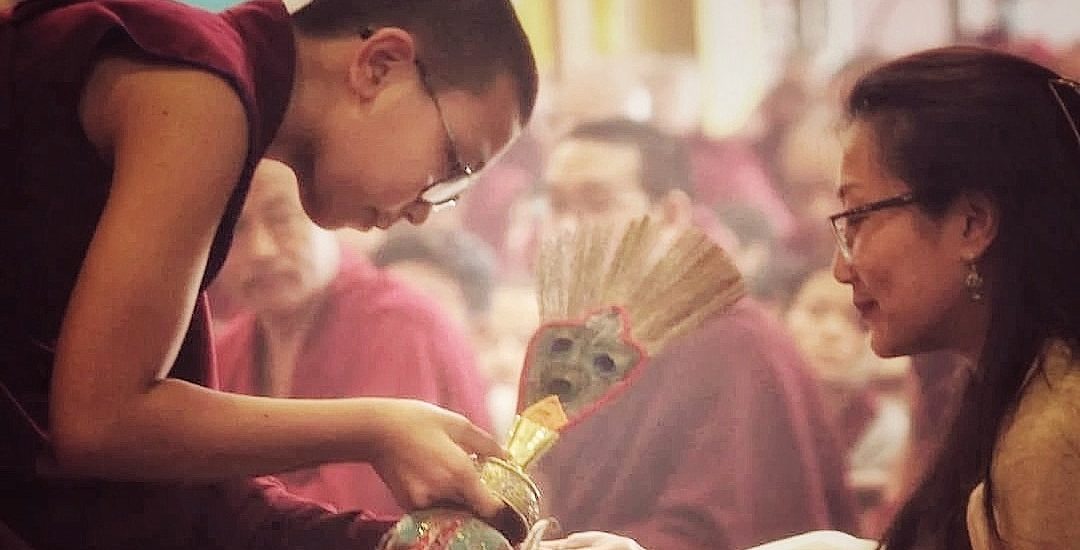Adapted from the original feature
I ask Dagmo-la about how, in the context of Vajrayana rituals, tradition and respect for continuity can be balanced with openness toward new ways of doing things and changing mindsets. She is happy to answer but remains modest about the extent of her knowledge: “I am familiar with, but not well-versed in Vajrayana rituals. And while I have traveled and met many people from many backgrounds and regions, I am nowhere as well-traversed as our lamas, especially since I had my children and decided to dedicate most of my time to them. You have asked an excellent question and one that I am not sure I would be able to answer well at all. Having said that, I will share my humble opinion.”
Dagmo-la begins by reflecting: “With our newer generations growing up all across the world, in increasingly secular environments, it is a very relevant question you have asked and one that must be discussed and seriously pondered upon. I think that the balance you mention can best come about through wisdom, open-mindedness and flexibility. A lack of judgement about things one is not familiar with, but also being wise in selecting what really would benefit from change and what ought to be kept traditional and unchanged.”
She believes that communities need to accept the prospect that younger generations might not accept many aspects of Tibetan Buddhist practice. New generations are growing up in non-traditional environments, which inevitably foster fresh and independent ways of thinking. “The sooner we accept that some change is inevitable, less energy can be expended struggling to hold onto that which cannot be held onto, and instead diverted to newer ways of helping the younger generation understand and connect with other aspects of our ancient Buddhist wisdom and practices,” she emphasizes—in this respect, and many others, her wisdom is truly estimable.
“Likewise for the younger generation, there will be many things that might not immediately make sense, and that is okay too. Buddhism is so deep and nuanced that to judge and reject immediately based on one concept that doesn’t stick is also extreme. I think that, in general, the big thing to keep in mind is to be openminded and flexible, yet to be wise and not change everything. Our wisdom is ancient, but the methods to understand that wisdom can be changed or altered or adapted so that they make sense and can be accepted by people of different times, backgrounds, and experiences.”


